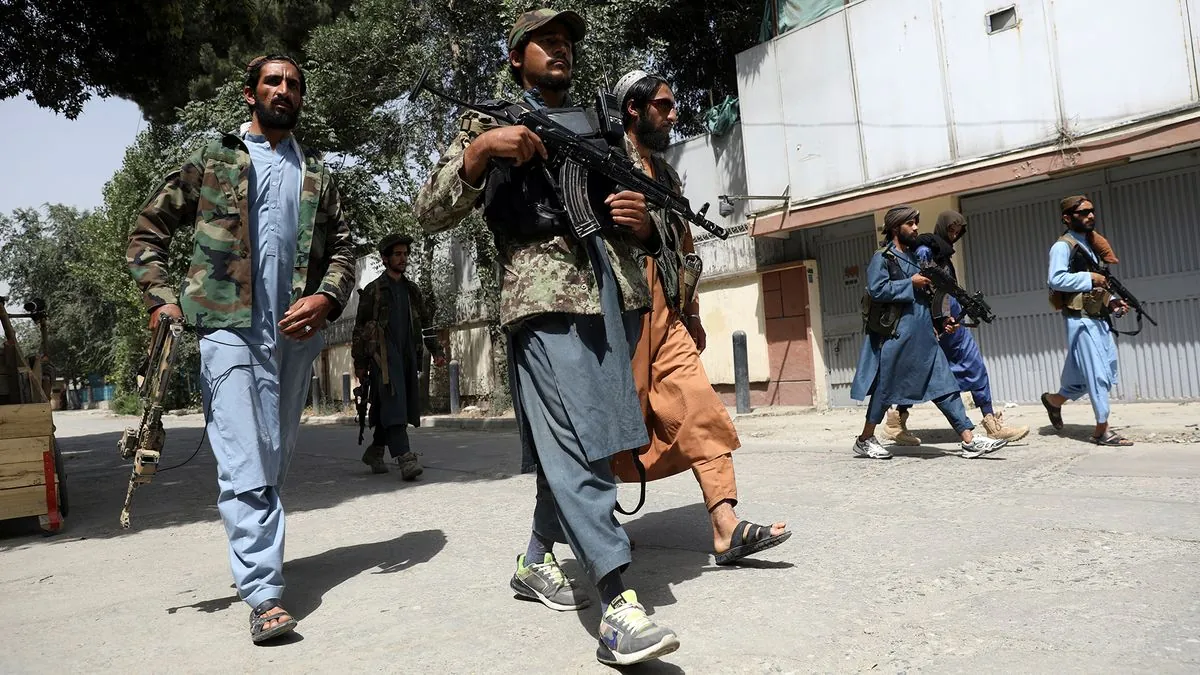UN Warns: Taliban's Grip on Afghan Women Threatens Nation's Future
UN rights chief condemns Taliban's extreme restrictions on Afghan women, warning of dire consequences. New morality laws and sweeping bans on education and jobs for women raise global concern.

The United Nations has issued a stark warning about the Taliban's increasingly oppressive control over women and girls in Afghanistan, stating that it poses a significant threat to the country's future. Volker Türk, the UN rights chief, expressed deep concern over the implementation of new morality laws that severely restrict women's freedoms and opportunities.
These laws, which include prohibitions on women's voices and uncovered faces in public, along with extensive bans on education and employment, have been described by Türk as "outrageous" and tantamount to systematic gender persecution. The Taliban, who regained control of Afghanistan in 2021 during the final stages of US and NATO withdrawal, have consistently tightened restrictions on women's rights since their return to power.

The Taliban's current rule mirrors many aspects of their previous regime from 1996 to 2001, during which they enforced a strict interpretation of Islamic law influenced by Pashtunwali, the traditional ethical code of the Pashtun people. This has resulted in the banning of television, music, and cinema, as well as the prohibition of education for girls aged 10 and over.
The impact of these policies extends beyond individual rights, affecting the nation's overall development and international relations. Afghanistan's economy, heavily dependent on foreign aid, has been severely impacted by the Taliban's actions. The UN Office for the Coordination of Humanitarian Affairs reported last year that the country required $4.62 billion in aid for nearly 24 million people in need.
"I shudder to think what is next for the women and girls of Afghanistan"
The situation for children is particularly dire, with 12.4 million in desperate need of assistance. However, a significant shortfall in funding has severely hampered the UN's ability to respond effectively. This crisis is further exacerbated by international sanctions, frozen currency reserves, and restricted access to global financial institutions.
Richard Bennett, the UN special rapporteur on human rights in Afghanistan, has also voiced concerns about the Taliban's treatment of women and girls. He noted a visible increase in the presence of morality inspectors and tightening restrictions on people's freedom of movement. Bennett warned that if left unaddressed, these repercussions would shape future generations.
The Taliban's policies have led to a brain drain, with many educated Afghans fleeing the country. This exodus, combined with restrictions on women's employment, has significantly impacted sectors such as healthcare and education. Afghanistan already faces one of the world's highest maternal mortality rates, partly due to lack of access to healthcare for women.
As the international community grapples with how to respond to the situation in Afghanistan, the Taliban's actions continue to isolate the country and push it further into hardship. The ban on girls' education alone affects approximately 3 million girls, potentially stunting the country's development for generations to come.
The reestablishment of the Vice and Virtue Ministry in 2021 has further entrenched the Taliban's strict interpretation of Islamic law. Recent reports suggest that even men's appearance is being regulated, with barbers instructed not to shave beards shorter than a specified length.
As Afghanistan faces an uncertain future, the international community remains deeply concerned about the long-term consequences of the Taliban's policies. With one of the world's youngest populations, the country's trajectory will have far-reaching implications for regional stability and global security.


































